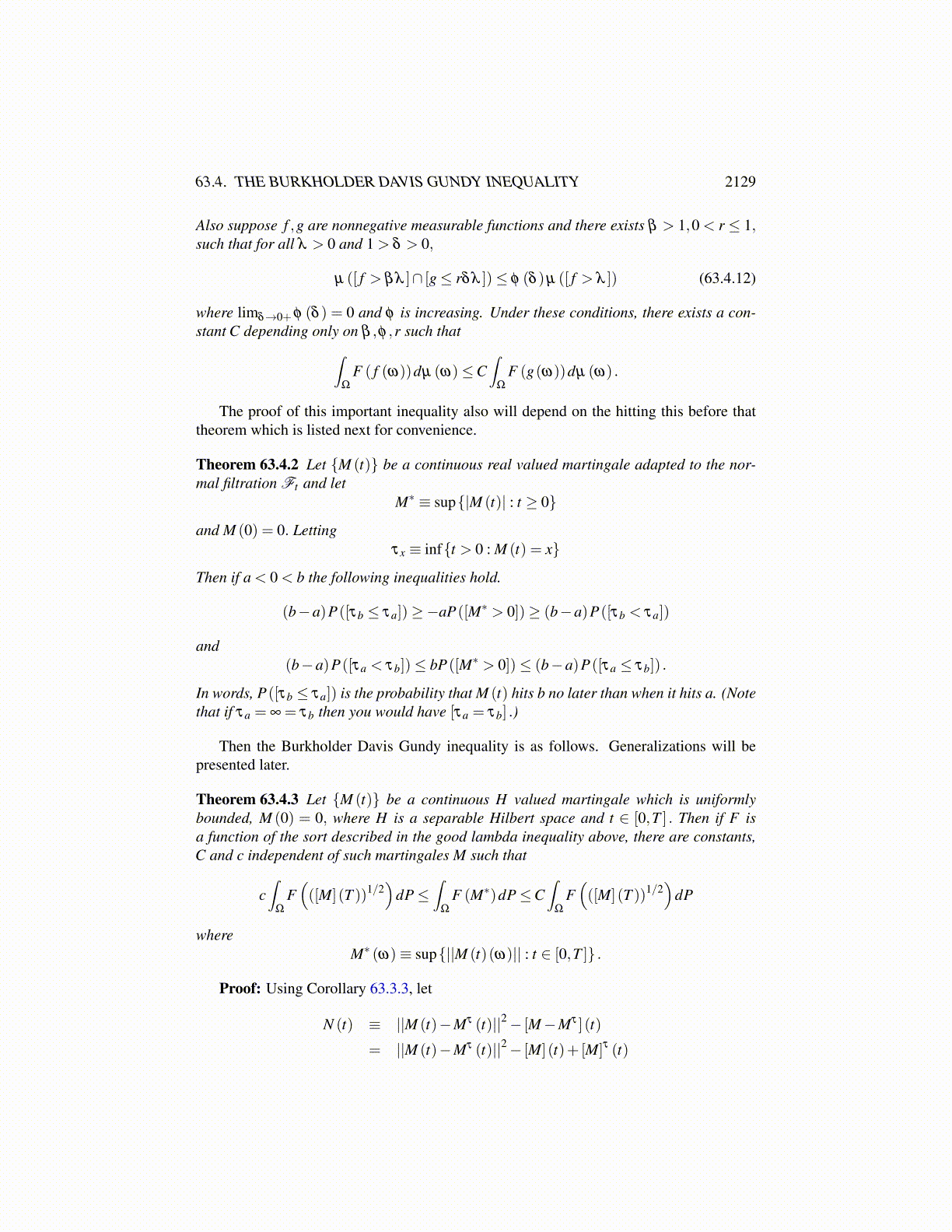
63.3. THE COVARIATION 2129
=14([M+N]τ − [M−N]τ
)=
14([Mτ +Nτ ]− [Mτ −Nτ ])≡ [Mτ ,Nτ ] .
The really interesting part is the next equality. This will involve Corollary 63.2.3.
[M,N]τ − [Mτ ,N] = [Mτ ,Nτ ]− [Mτ ,N]
≡ 14([Mτ +Nτ ]− [Mτ −Nτ ])− 1
4([Mτ +N]− [Mτ −N])
=14([Mτ +Nτ ]+ [Mτ −N])− 1
4([Mτ +N]+ [Mτ −Nτ ]) , (63.3.11)
the difference of two increasing adapted processes. Also, this equals
local martingale − (Mτ ,N)+(Mτ ,Nτ)
Claim: (Mτ ,N)− (Mτ ,Nτ) = (Mτ ,N−Nτ) is a local martingale. Let σn be a localizingsequence for both M and M. Such a localizing sequence is of the form τM
n ∧τNn where these
are localizing sequences for the indicated local submartingale. Then obviously,
(−(Mτ ,N)+(Mτ ,Nτ))σn =−(Mσn∧τ ,Nσn
)+(Mσn∧τ ,Nσn∧τ
)where Nσn and Mσn are martingales. To save notation, denote these by M and N respec-tively. Now use Lemma 63.1.1. Let σ be a stopping time with two values.
E ((Mτ (σ) ,N (σ)−Nτ (σ))) = E (E ((Mτ (σ) ,N (σ)−Nτ (σ)) |Fτ))
Now Mτ (σ) is M (σ ∧ τ) which is Fτ measurable and so by the Doob optional samplingtheorem,
= E (Mτ (σ) ,E (N (σ)−Nτ (σ) |Fτ))
= E (Mτ (σ) ,N (σ ∧ τ)−N (τ ∧σ)) = 0
whileE ((Mτ (t) ,N (t)−Nτ (t))) = E (E ((Mτ (t) ,N (t)−Nτ (t)) |Fτ))
Since Mτ (t) is Fτ measurable,
= E ((Mτ (t) ,E (N (t)−Nτ (t) |Fτ)))
= E ((Mτ (t) ,E (N (t ∧ τ)−N (t ∧ τ)))) = 0
This shows the claim is true.Now from 63.3.11 and Corollary 63.3.3,
[M,N]τ − [Mτ ,N] = 0.
Similarly[M,N]τ − [M,Nτ ] = 0